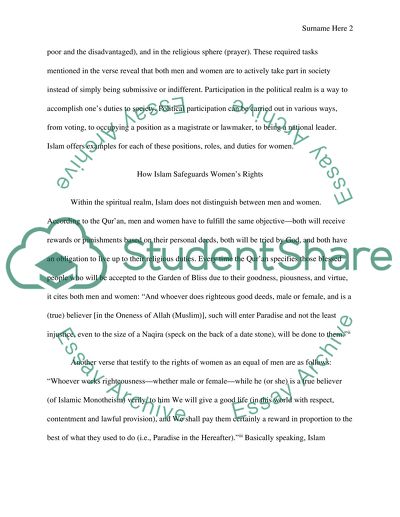Cite this document
(“Women's Rights in Islam Research Paper Example | Topics and Well Written Essays - 2500 words”, n.d.)
Retrieved from https://studentshare.org/religion-and-theology/1699675-womens-rights-in-islam
Retrieved from https://studentshare.org/religion-and-theology/1699675-womens-rights-in-islam
(Women'S Rights in Islam Research Paper Example | Topics and Well Written Essays - 2500 Words)
https://studentshare.org/religion-and-theology/1699675-womens-rights-in-islam.
https://studentshare.org/religion-and-theology/1699675-womens-rights-in-islam.
“Women'S Rights in Islam Research Paper Example | Topics and Well Written Essays - 2500 Words”, n.d. https://studentshare.org/religion-and-theology/1699675-womens-rights-in-islam.


